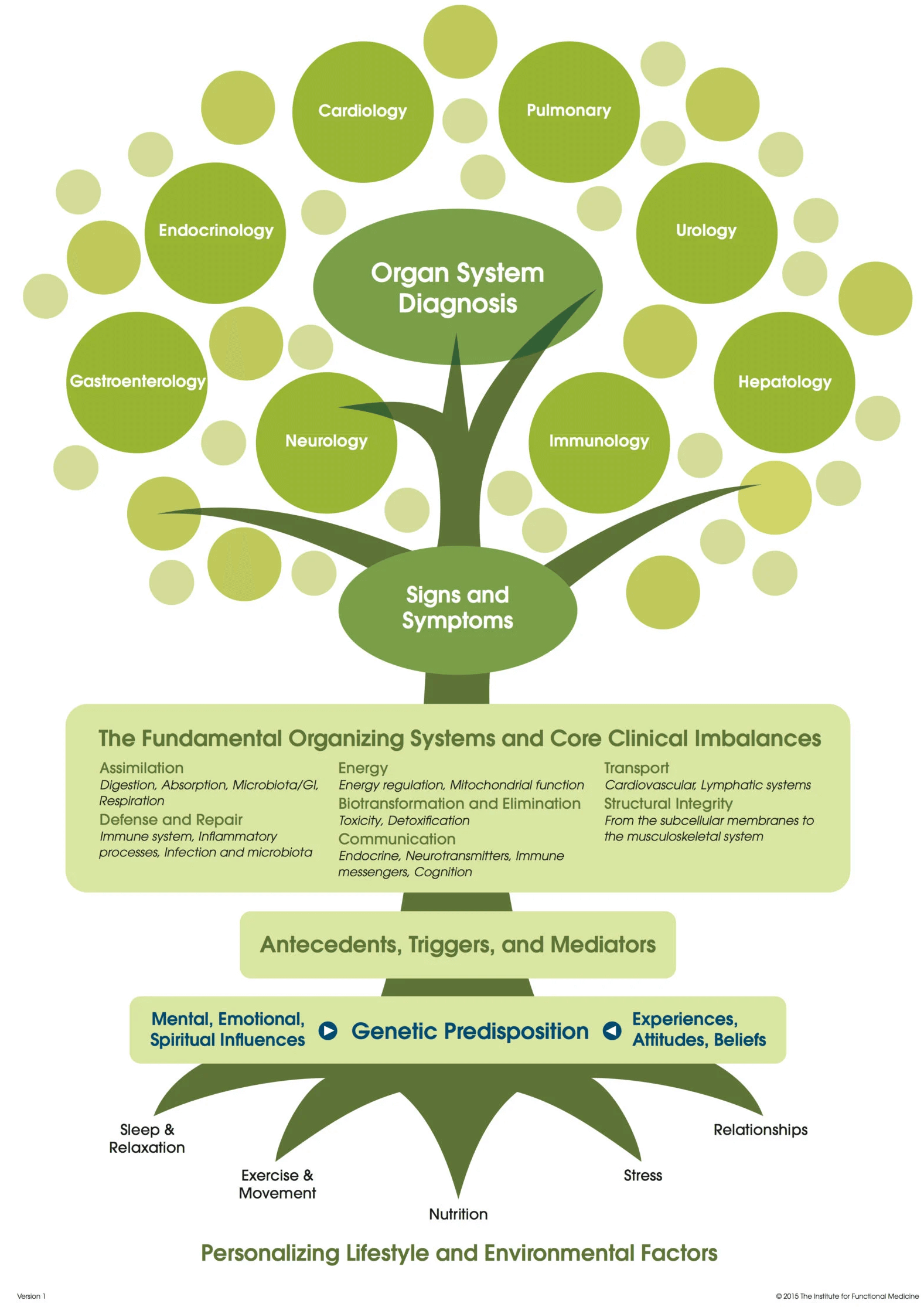For more than 15 years we have been using Functional Medicine to delve deep down to the root causes of chronic health conditions and correct these.
In FM, we ask what has gone wrong with the normal functioning of the body to create a situation where the health condition has developed and continues to persist?

We examine the fundamental organizing systems of the body and the core clinical imbalances, involving Assimilation, Defense and Repair, Energy, Biotransformation and Elimination, Communication, Transport and Structural Integrity as well as Antecedents, Triggers and Mediators (ATMs) of disease.
We look at patterns of lifestyle and environmental factors such as sleep and relaxation, physical activity and exercise, dietary and nutritional status, chronic stress and personal relationships and how these may be impacting one’s health status.
We use research-based functional lab interpretation, cutting-edge laboratory techniques and our current understanding of how environmental and lifestyle factors influence the emergence and progression of disease.
The same approach is used for chronic conditions as acute conditions:
However, long term use of prescription medications to manage symptoms often creates additional problems such as adverse reactions or cross reactions between multiple drugs. Functional Medicine takes a different approach by identifying the underlying causes that led to the chronic condition and addressing these root causes rather than suppressing the downstream symptoms or lab markers.
One of the features of Functional Medicine which distinguishes this from conventional medicine is the interventions chosen to address the intended targets. Rather than use pharmaceutical drugs that target a specific enzyme or immune pathway and rely on this alone, FM uses diet, nutrition and herbal compounds that have been shown in the research literature to have effects on the intended targets of intervention. These natural compounds are more easily assimilated by the body and pose less risk of side effects.
For example, in the case of intestinal bacterial or fungal overgrowth or respiratory viral infection, herbs that have antibacterial, antifungal or antiviral effects are chosen which are less likely to wipe out populations of important gut bacteria. These gut bacteria are now understood to play an important role in immune health and have other important regulatory functions in the body. Dietary recommendations are provided to support the gut microbiome or immune health.
Changes in lifestyle behavior are also often recommended to support specific organ function. For example, increased physical activity is important in metabolic disorders and activities to induce sweating can support detoxification of a number of different toxicants. Recommendations may also be made regarding sleep patterns and stress management. So patients should be prepared to make changes to their diet and lifestyle in addition to taking specific supplements when working with a FM practitioner.
Milpitas: 408-262-6606
1649 S. Main Street, Ste. 102
Milpitas, CA 95035
Oakland: 510-350-8082
6232 La Salle Ave
Oakland, CA 94611